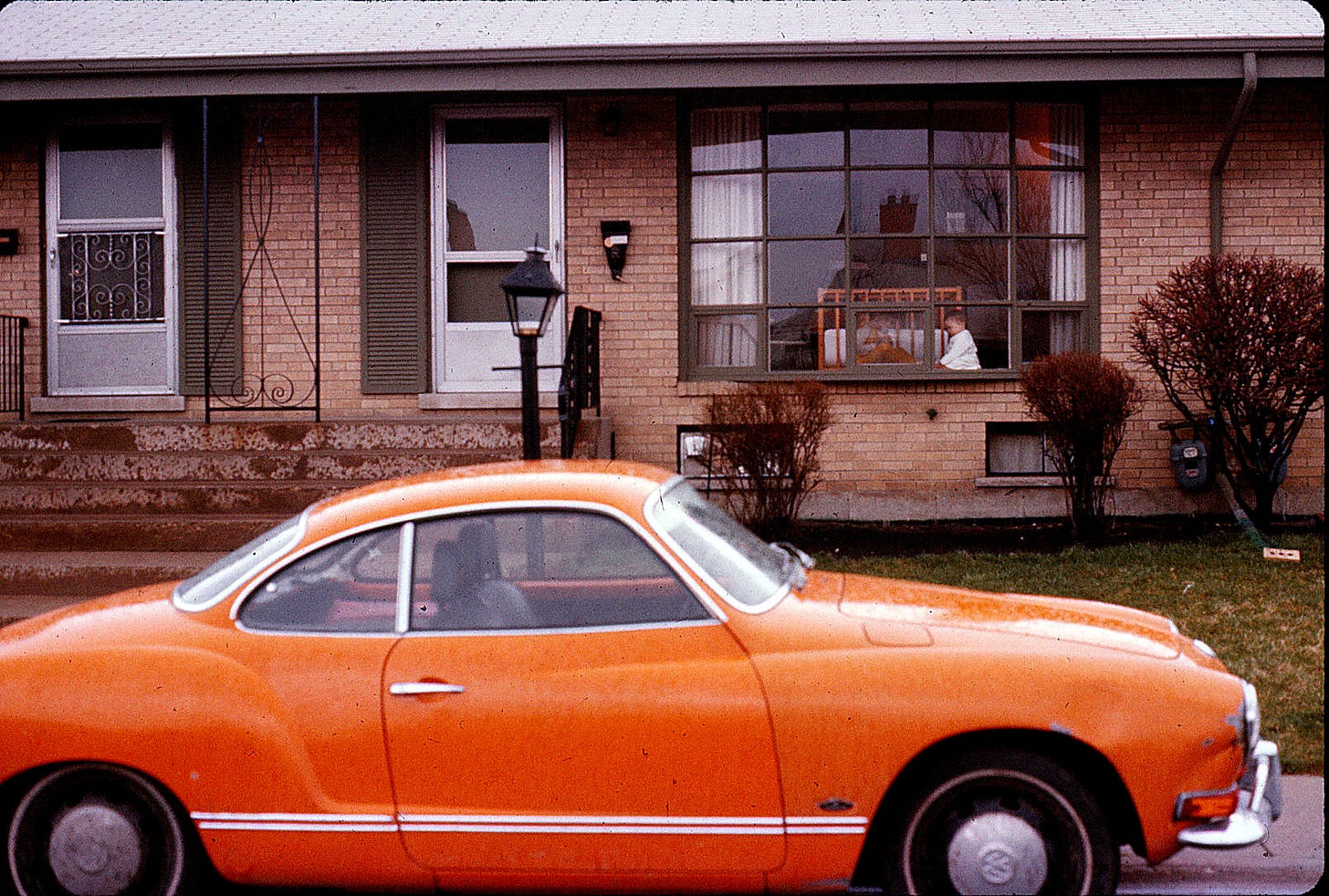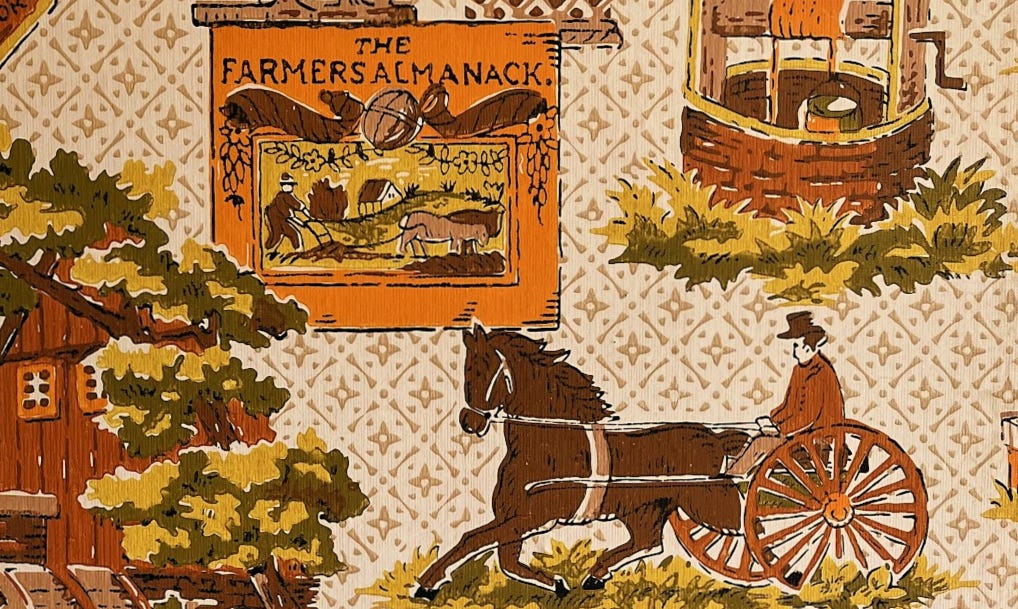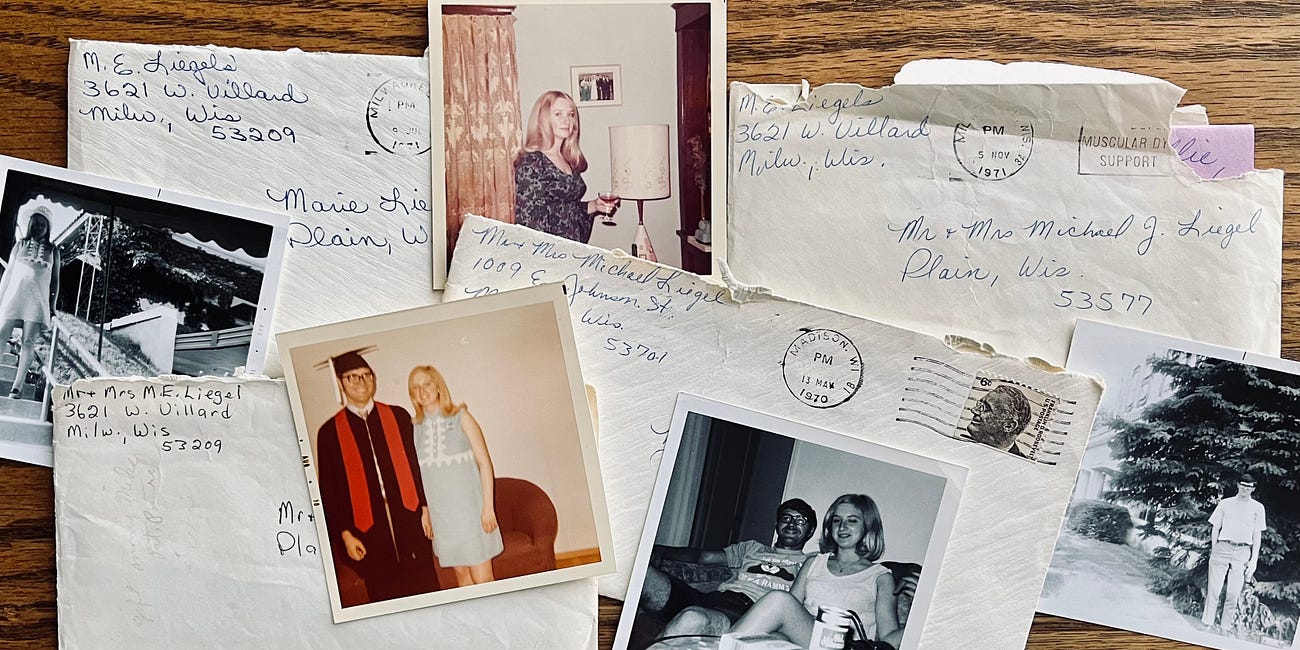Reviving 70s Nostalgia: Shared Power and Serenity for Modern Times
7 lessons from the 70s to stay chill today
After my brother died late 2022, I longed for the 70s like never before. The whimsy, the contradiction, the Tang, I missed it all, because I missed my brother and our earliest shared memories. In remembering the 70s, I ended up finding helpful lessons relevant today.
Here are my early life lessons from the 70s to help keep on truckin’ today (for whatever it’s worth, as always):
1. Stay whimsical
Flowing hair and hemlines. Folksy, funky music. Bold colors and mismatched patterns. There’s something so human about whimsy.
In the age of AI and bots, whimsy feels necessary, just like when I was a kid.
And after half a lifetime spent in efficiency, time-management mode, I’ve realized how essential whimsy is to feeling alive. What’s more, I have the confidence again to let it flow, and not worry what others think—the same way I did as a 70s kid.
2. Balance natural with synthetic
Planet earth and disco balls. Fresh-squeezed orange juice and “natural” tasting Tang. TV shows about life in space or back on the prairie. No, we can’t all live life off the land in some romantic way. And would we really want to?
The 70s had a natural-synthetic dichotomy. What’s wrong with that? Why not both?
With 8 billion people on this planet, living in the 21st century means balancing these two. The natural world and approaches need more attention, respect, and care. And synthetic solutions are needed to address problems and help people live (and hopefully live better).
3. Accept contradiction
The 70s were filled with contradictions. Just take the palette that colored the decade.
For some, avocado green, harvest gold, and burnt orange meant celebrating the social changes taking hold as right and natural.
For others fearful of change, the colors were comforting them like a Norman Rockwell painting of a New England autumn long ago.
Or maybe the orangy-brown was so popular because it masked nicotine stains so well.
Contradiction is a part of life. People see what they want to see. They see things differently. And sometimes, it’s okay to just let it be.
4. Share the work
“YOUR MOTHER DOESN’T WORK HERE. CLEAN UP AFTER YOURSELF” Those signs were everywhere for a reason. It was assumed mothers would clean up everything. Many boomer men grew up with their moms waiting on them, and expected their wives to do the same, even when they were also working outside the home. That was so unfair.
Hard work shouldn’t fall on any one person, including a mother.
I remind myself of that sign when I catch myself doing for my kids what they should be doing for themselves.
5. Share the power
The problem as the boomer generation entered adulthood was that a golden circle (mostly white, mostly male) was overrepresented in decision-making roles, lacked adequate checks and balances, and then got to set the standards. That wasn’t new (and still isn’t). But the “equal opportunity” 70s told them they earned it all fair and square, while others in difficult situations were told they “deserved” what they got.
Sharing power is messier, but it’s fairer, safer, and more interesting.
No one gets all the credit or all the blame. And in the end, self-worth shouldn’t come from having more power than someone else. And train tracks shouldn’t divide us into hierarchical grids with “right” and “wrong” sides.
6. “Reach out and touch someone”
Remember the old AT&T ad slogan? Long distance moves for college or jobs became common in the 70s. And long distance phone calls were an expensive luxury. Now we’re constantly “in touch” with everyone in our online social bubble. The world has become more distant, sterile-like, and isolating.
Sharing space and connecting with others makes the world feel bigger and safer.
There’s something magical about being around lots of different people. With everyone head down scrolling, it’s easy to forget that it’s still okay to talk to people, even “strangers” — just keep your hands to yourself. And be there when a friend needs needs a hug. Human touch is so important. Mutual consent and respecting boundaries are too. Communication and context are key to figuring out how to honor them.
Seventies songs have gentle sounds and touching lyrics. Have you heard Diana Ross’ 1970 solo hit, “Reach Out And Touch (Somebody’s Hand)”? It’s so lovely: “Reach out and touch / Somebody’s hand / Make this world a better place / If you can.”
7. Let hope shine through the doom
The 70s were a gloomy decade. My parents moved into a funeral home to get by after their first baby was born. Later, my young mom of four got dirty looks at the grocery store, blamed for contributing to overpopulation. The world was on the cusp of mass starvation, people were told. Many were preparing for catastrophes different from the ones already happening. You hear similar things today.
I’m old enough to know that expected bad things don’t always happen. And sometimes, good things happen, unexpectedly. Seeing the half-full side along with the half-empty one seems like a wise thing to do.
Staying clear-eyed and hopeful at the same time is tricky, but worth the try.
Can you stay clear-eyed about the world and dream of what’s possible?
Can you have you notice the weeds and the clouds?
I’m still working on this one, but once in awhile I feel like I’ve got it.
“Clouds in my coffee,” is what I call the feeling, borrowed of course from the masterful songwriter, Carley Simon.
After I lost my brother, I longed for childhood like never before
Lately, my headspace has been stuck in the ‘70s, when my brothers and I were born, starting with my oldest brother Patrick in 1970. The same one who late last year became the first one to die. Just like that. No accident. Just from natural causes, including despair.
My parents' cost-of-living struggle in the '70s. Why is help still so hard to get?
Hearing my parents' voices in letters from 50 years ago has got me thinking about the impossible choices too many families face. Did the '70s really ever end?









